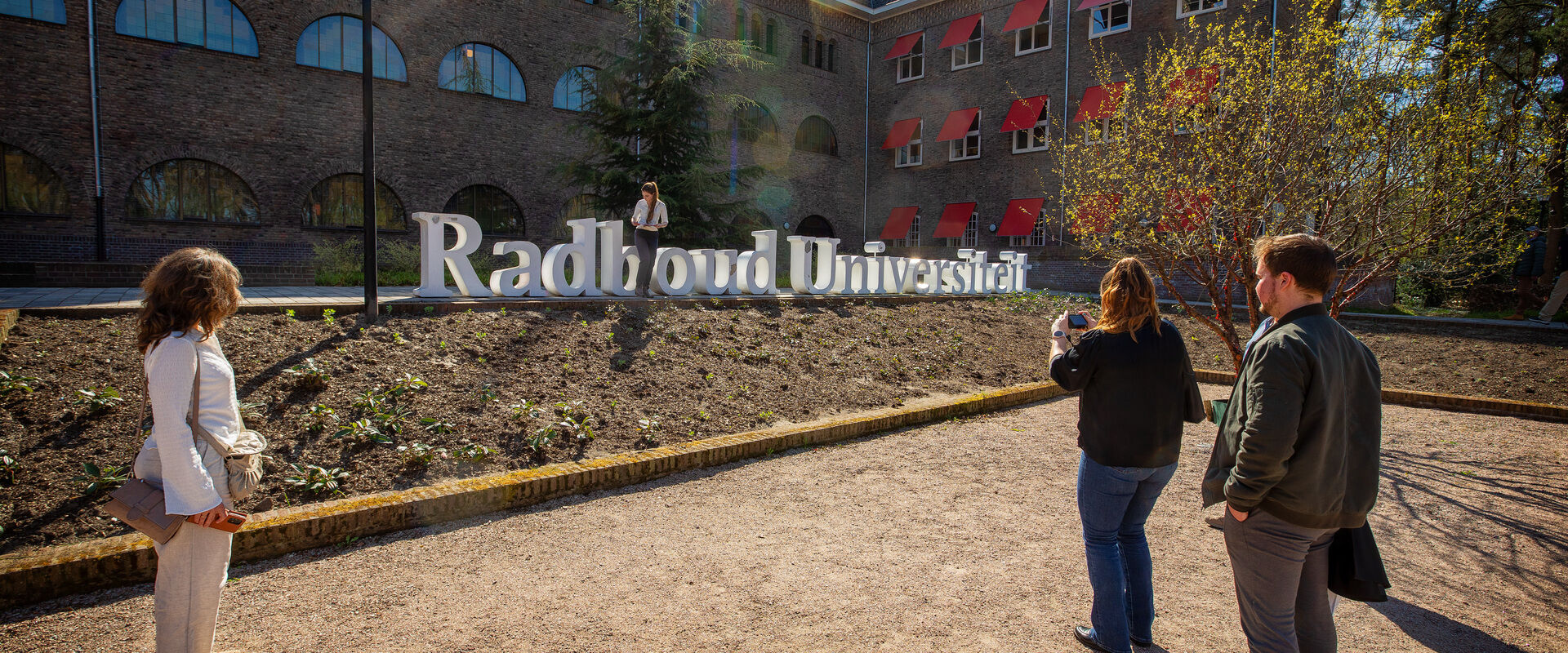Biomedical sciences is a broad field ranging from infectious diseases to toxicology, from epidemiology to immunology, and from medical neuroscience to cancer. It is also broad in its approach to any one of these areas with the common aim to improve the health and well-being of patients.
This Biomedical Sciences programme offers a solid basis in research with close ties to three research institutes in Nijmegen. All three institutes are located on the campus of the Radboud university medical center which means you will be researching within clinical practise.
There is no better way to experience how research benefits the health and well-being of the patient; the ultimate goal of all biomedical research. In addition to research, this Master’s programme offers many other career options. During you programme you can choose between the Research, Communication and Consultancy career profiles.
Biomedical Sciences: Something for you?
- Get the opportunity to construct your own programme based on personal, academic and professional interests.
- Pursue your own field of interest regardless of whether you want broad knowledge of biomedical sciences or in-depth specialisation.
- Get a thorough understanding of the molecular, individual and population aspects of human health and disease with unique areas of expertise.
- Choose from one of eight specialisations in Nijmegen or design your own programme.
- This study programme is ranked top 100 worldwide in its field by QS World University Rankings.
What will you learn?
You will get a thorough understanding of the molecular, individual and population aspects of human health and disease and specialising in a biomedical science of your choice. The Master’s programme allows you to construct a curriculum that meets your research interests and career goals. There are a few compulsory courses associated with your chosen career profile. Beside these, we offer a broad range of over 70 different biomedical courses from which you can choose as well as two internships and a literature thesis.
Career prospects
This master’s programme in Biomedical Sciences will teach you refined research skills. However, at Radboud University we understand that not everyone wants to become a researcher. A biomedical scientist has lots of options. To help kick-start your career after graduation we offer you different career profiles. There are mandatory courses connected to each profile.
After the master’s, biomedical scientists pursue a wide range of careers. Possible occupations after the master Biomedical Sciences are:
- Scientific researcher/PhD candidate
- Science editor (science communication)
- Scientific consultant
- Clinical study manager
- University teacher
- Scientific policy advisor
- Manager at a biomedical company
- Medical scientific liaison
- Research project manager
- Epidemiologist
Satisfaction: A majority (81%) of graduates of the master’s in Biomedical Sciences finds a paid job before or directly after graduating. And many of our alumni are content with their positions (88%), positive about the extent to which capacities are utilised (88%), and believe that the job offers good prospects for career advancements (79%).
Possible specialisations:
- Drug Safety and Toxicology: This specialization addresses the need for skilledtoxicologists in an era where environmental exposures to chemicals rank as a prominentrisk factor for chronic diseases and mortality. It questions how various chemicals, toxins,and drugs impact human health at different exposure levels? How can predict long-termrisks of exposure to new drugs or industrial chemicals? And what methods are mosteffective for detecting and mitigating the effects of toxins of exposure?
- Molecular Medicine: This specialisation integrates biology, bioinformatics, chemistry,and medicine to explore molecular structures and mechanisms, uncover genetic andmolecular disease origins, and work out interventions to improve these issues.Understanding how genes, proteins, and cellular components work in diseases is at thecore of this field. It's dedicated to diagnosing, treating, and preventing. Molecular medicine rapidly translates laboratory findings into innovative diagnostics and therapies,making it an essential driver of future medical practices and advancements.
- Immunology and Host Defense: This specialisation focuses on understanding how theimmune system protects the body and what occurs when it malfunctions, leading todisease. The courses cover inflammatory diseases, drug development, cancer immunity, cell death, and cell movement.
- Health Technology Assessment: This specialization features a broad approach,including effectiveness research, economic analysis, patient outcome measurement,assessment of organisational consequences, and ethics. As such, it requiresinterdisciplinary teamwork. Students need to make legitimate decisions about adoptingnew technologies in healthcare. It is tightly interwoven with clinical practice and healthcare policy.
- Clinical Human Movement Sciences: This specialisation has a strong multidisciplinarycharacter with topics like (exercise) physiology, (functional) anatomy, biomechanics,orthopaedics, neurosciences and rehabilitation. It is characterised by a strong patient-centred approach where we focus on how to get and keep patients as physically activeas possible.
- Medical Neuroscience: This specialization has a strong multidisciplinary character withtopics like genetics, molecular biology, behavioural neuroscience, and clinicalneuroscience. It is characterised by a strong interdisciplinary translational approach tohealthcare innovations. We focus on bridging the gap between fundamentalneurobiology and clinical neurosciences.
- Epidemiology: This specialisation delves deep into various health domains, frominfectious diseases to cancer and from lifestyle to public health. It allows students toacquire valuable skills in every phase of research: from study design and data collectionto analysis and the dissemination of results.
- Advanced Medicines Development.




